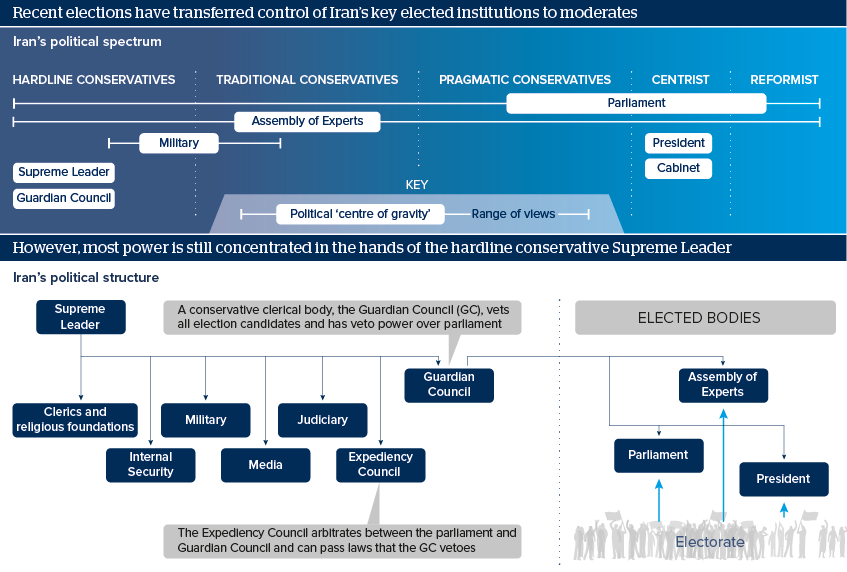Political system will limit liberalisation in Iran
Hardline conservatives have lost key elections to moderates -- but they still hold the balance of power

Source: AEI Iran Tracker, The Iran Primer, Majlis Monitor, Al-Jazeera website, Oxford Analytica
Outlook
Iran's new parliament is due to convene on May 28. The victory of moderate forces in the 2016 parliamentary and 2013 presidential elections shows that Iranian politics and international relations are rebalancing towards the centre after a divisive period dominated by hardliners.
The elections provide a strong popular mandate for economic and social reform -- however, no radical changes are expected. In Iran's multi-polar, theocratic system, elected institutions are constrained by clerics, headed by Supreme Leader Ali Khamenei. A hardline conservative, it is he, not the government, that is responsible for setting domestic and foreign policy, and who directly controls the armed forces, judiciary and key clerical bodies.
Impacts
- President Hassan Rouhani will seek conservative backing for gradual change.
- The new parliament should facilitate his economic reforms and boost his chances of re-election in 2017.
- Social and political reforms will take longer to materialise.
- The business and investment environment will become more stable.
- Diplomatic relations will improve, but Iran's core anti-US stance and Middle East policy will remain unchanged.
See also
- Iran's military set for more aggressive stance in Gulf - Jul 29, 2016
- Iran's conservatives will retain political dominance - May 25, 2016
- Iran's new parliament will facilitate reform agenda - May 3, 2016
- More graphic analysis